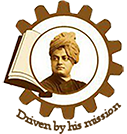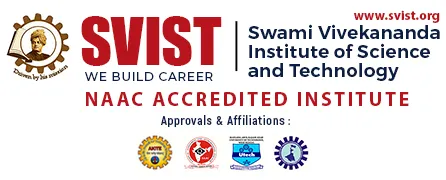Teacher Training Policy
Teachers Training Policy at the institute is prepared using guidelines given by AICTE and considering practical scenario in Un aided Professional Technical institutes.
The training need of teachers in their career can be classified under two distinct categories ofthe training
program:
- Faculty Induction Program to be provided just after joining the institute.
- In-service training program for specific requirements at various levels of the career.
A. OBJECTIVES
- To identify the training needs at different levels of career and for different categories of teachers, considering the expectations from a good teacher and technical education scenario.
- To prescribe the structure and contents of the training program at different levels.
- To monitor, facilitate and successively impindustry, institutions, government agencies and NGOs.
- Imrove the quality of training through suitable resource persons and resource material.
- Continuous updating of technical subject expertise by successful completion of at leastone subject
- course offered through technology-based means every year.
- To know latest trends in technology through Industry Institute Interaction.
- To develope healthy, technology oriented academic and research culture in the institutewhich will
- be eventually percolated upto students.
B. TRAINING POLICY
- Faculty Induction Program
- General orientation about the present scenario and challenges of technical education, need of teamwork resulting in feeling of ownership, duties and expectations.
- Basic understanding of the teaching-learning process, outcome based education, details about Academic, R&D and Internship Policies of institute.
- Orientation about relevant ICT tools supporting effective teaching-learning and resources for lifelong learning.
- Exposure to good teaching practices, lab development, Industry Institute Interaction etc.
- Orientation about importance of various feedbacks resulting into appraisal.
- Awareness about role in view of smooth working through vertical hirarchy (Department under Head of the Depatment) and horizontal hirarchy (Functional Committees under Deans) as per organization chart of the institute.
- Awareness about aspects other than teaching and research such as administrative procedures, financial procedures and legal implication etc.
2. In-service training program at various levels of teaching career
During 1-5 years:
- Motivation to attend various Refresher Modules, STTPs, FDPs for knowledge updating, newer developments and thrust areas in the concerned fields
- Training for research guidance, sponsored project planning and conduction, consultancy etc.
- Training for lab development
- Training on IPR issues, patenting, technology transfer/dissemination and ethical issues in R & D
- Training on organization of conferences, workshops, symposia etc.
- Training for necessary record keeping work in view of evaluation by various bodies such as NAAC, NBA etc.
- Training to contribute in institute level functioning as member of Functional
- Committees under Deans as per organization chart of the institute.
During 5-10 years
- Refresher Modules, STTPs, FDPs for knowledge updating, newer developments and thrust areas in the concerned fields
- Training on curricular development, resource material development and good practices in teaching and research
- Training for necessary record keeping work in view of evaluation by various bodies such as NAAC, NBA etc. In a role of some criterion incharge at department or institute level
- Training to contribute in institute level functioning as head of Functional Committees under Deans as per organization chart of the institute.
During 10-30 years (Professor/ Associate Professor/ HOD/ Dean)
- Refresher Modules for knowledge updating, newer developments and thrust areas in the concerned fields
- Training on collaborative research with industry, institutions, government agencies and NGOs
- Planning for departmental growth, institutional growth, motivation and efficiency
- Removal of obsolescence and planning for continuous growth of the departments and the institute.
- Effective interaction with monitoring and collaborating agencies
- Facilitating a value-based ethical environment in the institution
- Handling of disciplinary issues
- Liaison with governmental monitoring/ regulatory bodies

